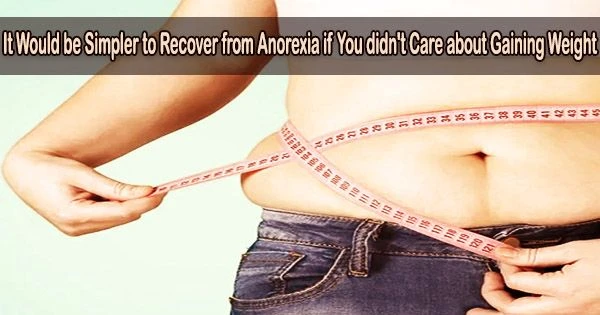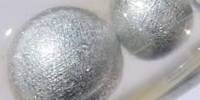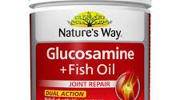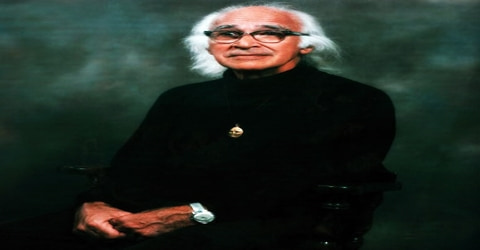An eating disorder can persist many ways. The fact that there are so many ways to get this recovery thing wrong and so few ways to get it right may be demoralizing. But in reality, most if not all of the reasons why it isn’t managed come down to one thing in the end: the patients’ desire to avoid gaining too much weight.
In everyone I’ve ever known or worked with who hasn’t gotten fully better, the reason has always amounted to this.
When you don’t allow your body to perform what it has to do (acquire new fat tissue after malnutrition), a variety of situations may result. One typical example is described as follows: a lot of erratic snacking on diet foods, constant hunger, borderline binge-eating, occasionally actually bingeing on raw vegetables (possibly also occasionally bingeing on nutritious food, when your hunger really gets the better of you), with or without compulsive exercise as a further dysfunctional attempt at body control.
It’s remarkable how hard it can be to break this set of habits once it’s installed or not remarkable at all, when you consider the potency of the feedback loops involved:
- Your hunger is enormous because you’ve never given it remotely enough fat or sugar (or maybe also protein) to be stilled.
- So you can’t help eating often between meals.
- But you don’t dare to eat real food, so the chaotic grazing does nothing to sate you.
- You become more, more afraid of your hunger, and more and more certain that you must take serious measures to maintain your weight under control since nothing satiates you.
- So you clamp down even further on the list of acceptable foods, making it more and more impossible for any of them to nourish you.
- This probably induces further metabolic adaptations that keep you from losing more weight.
- You interpret these as more evidence that your metabolism is broken rather than doing exactly what it should to keep you functioning.
- You tighten the noose further, and have less and less energy or capacity for anything except preoccupation with body size, weight, and shape.
It’s an absolutely miserable existence. And there’s a beautifully simple, if not easy, way to escape it or prevent it.
Prepare and eat one big, rich, fatty, carb-y, protein-y meal. See how you feel. Observe that you desperately want more. Allow yourself more. Observe that you slightly less desperately want more now. Wait a couple of hours. Don’t get on the treadmill. Make and eat a large snack that’s never heard of the concept of low-fat anything. Observe that you want more. Maybe have more, maybe don’t.
Do some other more interesting things in between. Allow yourself to gradually come to the realization that nothing about any of this was ever mysterious. A body deprived of what it needs will never act other than to scream until it receives what it needs or until it gives up.
Maybe the fear of getting much larger is so overwhelming that this simplicity, repeated and expanded for months, feels incomprehensible to you. But it’s important to remember that you don’t have to stop being frightened. You just need, as they say, to feel the fear and do it anyway. The physiological rescue will be performed regardless of how many body-positive thoughts you are or aren’t having, as long as you are, in fact, eating the bacon instead of the fat-free yogurt.
How do you do it?
One approach might be to see the healing process as being free of any bad connections with gaining weight, fat, or growing larger.
You’d still have the frightening levels of hunger (and its frustrating disappearance just when it’s most needed), the fluid retention and bloating and cramping and night sweats and diarrhea, the massive emotional oscillations, the disorienting need to reject numerous social edicts on healthy living and to reject numerous restrictive life principles from sexual celibacy to financial stinginess.
But if that were all there was, I (Emily T. Troscianko, Ph.D.) don’t think you would struggle with this any more than the Minnesota starvation study volunteers did which is to say, a bit, but much more when they weren’t yet allowed to eat enough than they were once allowed to. One of the many reasons this specific study endeavor is still valuable over 80 years later is the peek it provides of what semi-starvation recovery without concern for fat looks like.
Imagine, then, if all the following were not negatives:
- Gaining weight quickly in the first days or weeks
- Feeling your waistband tighten after eating
- Gaining fat initially around the midsection
- Growing out of old clothes
- Seeing your shape change in the mirror
- Seeing fat appear in new parts of your body as you look down at yourself
- Feeling parts of your body touch each other when you move that never used to
- Linking each new food or bigger meal ingested with direct immediate weight gain
- Stopping being the thinnest person in most rooms
- Observing or imagining other people noticing your weight gain
- Losing the identity that was constructed on thinness and frailty
Imagine all these things still happening, as they must, but none of them bothering you. Imagine, if you like, welcoming them as you might welcome getting denser bones, shinier hair, clearer skin, stronger muscles, better stamina, because, like all of these, they’re so clearly central to the healing from illness to flourishing.
Perhaps it’s strange to think about this process without the constant fretting over body fat. The closest I’ve come to observing it in anyone else is in a man I coached a couple of years ago. I don’t think him being male was coincidental. He genuinely disliked being scrawny (and called it that). He was not without his worries about body fat (more specifically, the inherited male pressure to gain muscle rather than fat), but at least there was a strong dislike of thinness working against them.
The other person in whom I’ve observed the not-scared-of-getting-fat version of recovery is myself. Not all the time, by any means. At the start, I was scared. But the fear of fatness lessened as the fatness grew. At a BMI above the so-called “healthy range” I felt alive and sexy and at ease with my body far more than I had at any of the lowest-ever BMI thresholds I got to, and far more than at any of the “low healthy range” in-betweens.
If I’d halted weight gain at my current BMI on the way up, I shudder to think what my life would have become, even though it’s great for me now. My helping hand wasn’t being male, it was doing this in 2008-10, long before I had a smartphone or spent any serious time on the internet. I reflected on the importance of this a few years ago in “26 ways to be happy about getting fatter.” Fraudulent kinds of bodily perfection impinged so much less back then.
You could say that subtracting fear of fat means ignoring a crucial part of the reality of anorexia nervosa after all, the current DSM gives “Intense fear of gaining weight or becoming fat, even though underweight” as one of the three diagnostic criteria. The physiology will save you, though, if you let it, and letting it need only require actions and not mindset. The power of “as-if,” of the nerve held for just long enough to sweep those feedback loops into new directions, is vast.
One simple way to keep yourself honest and surf the “as-if” is to keep a record of “things I’d have done differently if I weren’t afraid of getting fatter.” If you have the document handy, you could find that it helps you make better choices since you can immediately adjust your course when you realize that choosing the higher-calorie sandwich would require you to add this episode to your list. With items you do add to the list, they can serve as to-do ideas for your recovery planning: okay, not ordering fries with my burger keeps coming up, I’ll do this once next week.
Recovery is full of ironies, and here’s a little one to fling in to conclude. There’s so much evidence of how trying not to get too fat in the standard ways simply doesn’t work. Pseudo-recovery will, in many cases, give you precisely the body you’ve convinced yourself is disastrous to have.
Even if that particular weight/fat could be the basis for the same person’s health and happiness if it were a result of them eating to truly replenish themselves, this leads to a pretty unhappy life. If you dare to let your body grow, the point is that you can’t know how much it will need to (or how much it will or won’t later “shrink” again) and you must not try to dictate any of it.
You get some as-yet-unknown version that will, by definition, be the one you can finally be satisfied with by letting go of the body whose size and shape kept you caring so horribly much about size and shape. Maybe it’ll be the exact same as you would have had (or used to have) in quasi-recovery, but will feel entirely different now, because it’s based on accepting and honouring appetites, not squashing them.
I make no claims for the representativeness, either physiological or psychological, of my progress through a recovery that included overshoot and tapering, but I can say that at every point since I began recovery all those years ago back in 2008 (with a very few briefly agonized exceptions), I have felt bodily better, in both appearance and sensation, than at any point during my illness (except the very early honeymoon days).
The current state of affairs did not magically come to be in order for everything to be alright. I had no idea that overshoot existed until long after it had happened, and since my body finally did all it needed to after years of inadequate nutrition, life including bodily things has had all the open-ended fluidity it should always have had.
Nothing is static, and growing older (I’m 40 now) will continue to change my weight and body composition. There’s not much I feel grateful to anorexia for, but one of the things I am grateful for is that it forced upon me the experience of learning that as long as my body i.e. I, my self is getting what it needs, life is good.
Reference: https://www.psychologytoday.com/us/blog/hunger-artist/202206/one-thing-makes-anorexia-recovery-hard
















